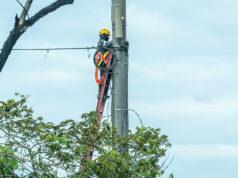Cebu Pacific expands cargo operations
CEBU AIR, Inc. is converting two of its ATR 72-500 passenger planes into freighter planes in order to take advantage of the growing demand from the logistics industry. In a statement, the listed operator of Cebu Pacific said it inked an agreement with Switzerland-based service provider IPR Conversions Ltd. to convert two of its ATR 72-500s.
“With the freighter aircraft, we will further support the growing needs of the logistics industry, especially as the Philippines’ e-commerce businesses expand rapidly and look for faster delivery schedules,” Cebu Air President and CEO Lance Y. Gokongwei was quoted as saying.
This is the first time Cebu Pacific will operate specialized aircraft to transport cargo.
“One other thing that we’re very excited about and very proud of is we are revolutionizing cargo operations and we will be the first (local) airline to actually have dedicated cargo aircraft. We are transforming two of our ATRs to a full cargo aircraft with big doors to handle cargo across the country,” Candice Jennifer A. Iyog, Cebu Pacific vice-president for marketing and distribution, said in a press conference yesterday after a tour of the new Mactan Cebu International Airport terminal.
The passenger ATR 72-500 aircraft will be installed with a large cargo door to allow standard containers and pallets to be loaded. It will also have space for seven AKE Unit Load Device (ULD) containers, as well as carry more than seven tons of cargo.
The Gokongwei-led budget carrier is looking to take delivery of the two converted cargo aircraft by the fourth quarter of the year. Its subsidiary CebGo will operate the converted aircraft.
“Having dedicated cargo aircraft means that we are no longer dependent on a scheduled service for passenger aircraft to be able to carry the cargo… Now we will be able to provide flexible timings and routings as well,” Ms. Iyog said.
Currently, Cebu Pacific Cargo corners a 50% market share for domestic air cargo, using its passenger aircraft fleet. Cargo revenues jumped 29% to P4.6 billion in 2017, and 26% to P1.3 billion in the first quarter of 2018. — Denise A. Valdez with a report from Maya M. Padillo



